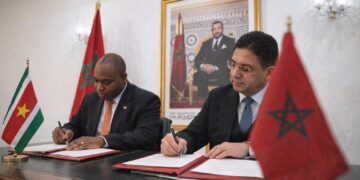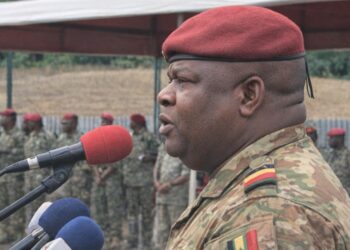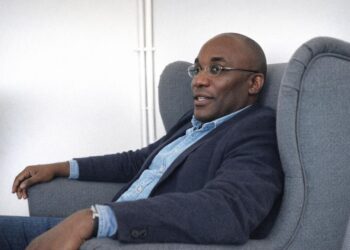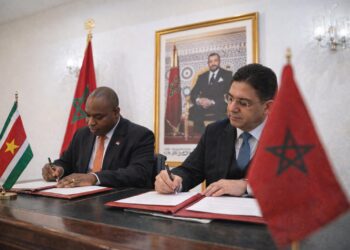Heritage in the Equatorial Heartland
Dense rainforests, braided rivers and a polyphonic patchwork of more than seventy ethno-linguistic communities have long conferred on the Republic of Congo a cultural depth that belies its modest demographic footprint. The country’s intangible heritage, listed in part by UNESCO for its oral traditions and ritual dances, functions as both social cement and diplomatic calling card, allowing Brazzaville to showcase diversity while stressing unity (UNESCO 2023). In regional forums, officials are increasingly highlighting cultural preservation as a development vector, signalling alignment with the African Union’s Agenda 2063 and underscoring President Denis Sassou Nguesso’s emphasis on cultural diplomacy.
Social Hierarchies and Collective Resilience
Respect for age and status remains a central organising principle. Congolese interlocutors often privilege consensual harmony over blunt frankness, a practice that seasoned diplomats recognise as a negotiation asset rather than mere etiquette. Elders frequently arbitrate communal disputes, preserving social equilibrium where formal institutions might be distant. This deference, embedded in customary law and echoed in urban corporate settings, allows a subtle fusion of tradition with modern governance models, a synthesis noted in recent African Development Bank social-cohesion indicators (AfDB 2022).
Household Economies and Gendered Expertise
Within the domestic sphere, labour is still largely gender-differentiated. Women navigate a demanding trifecta of subsistence agriculture, market trading and household management, roles that make them de facto stewards of food security. Men, by contrast, assume obligations in hunting, heavy agriculture and community representation. International NGOs monitoring rural livelihoods observe that such complementarity, while steeped in historical precedent, is gradually recalibrating as girls’ enrolment rates climb and micro-finance opportunities widen (UNICEF 2023). Government programmes supporting female entrepreneurship in Brazzaville and Pointe-Noire have further accelerated this evolution without precipitating social dislocation.
Aesthetic Traditions in Everyday Attire
Clothing in Congo transcends mere ornament. The ubiquitous bous-bous—vivid bands of cloth draped at the waist or fashioned into elaborate headwraps—offer a daily canvas for identity. Textile colours signal regional origins, life events or even political affiliation during campaign seasons. Tailoring hubs in Ouenzé and Tié-Tié have become incubators of creative industry, supplying regional fashion weeks and nurturing a nascent export market. The Ministry of Culture’s recent partnership with Central African fashion councils illustrates a growing awareness that sartorial heritage can advance economic diversification while nurturing pride.
Sporting Passions Forging National Unity
When the Red Devils football team storms the pitch, urban traffic stalls and radio dials synchronise. Soccer, introduced during the colonial era, is now the republic’s unrivalled pastime, eclipsing—but never eclipsed by—basketball, volleyball and handball, each supported by youth academies in Dolisie and Owando. Fishing likewise straddles subsistence and leisure; weekend anglers on the Kouilou River attest that a good catch nourishes both household and spirit. Public-private initiatives, including a FIFA-co-funded refurbishment of the Alphonse Massamba-Débat Stadium, underscore sport’s status as a unifier and a vector of healthy lifestyles, a policy priority echoed by the Ministry of Youth and Sports (FIFA 2023).
Gastronomy Between Abundance and Strategic Imports
Cassava in its myriad forms—fufu, chikwangue, saka-saka—anchors the Congolese diet, complemented by bananas, taro, groundnuts and the occasional flourish of cocoa or pineapple. Paradoxically, up to ninety percent of animal protein is imported, a statistic rooted in historical underinvestment in livestock infrastructure (FAO 2023). Brazzaville’s response has been two-pronged: incentivising small-scale husbandry in peri-urban zones while consolidating cold-chain logistics for imported beef and poultry. Culinary creativity thrives nonetheless. Market stalls in Poto-Poto transform mundane ingredients into dishes that blend French technique with Bantu flavours, a gastronomic hybridity that diplomats frequently cite as an ice-breaker during negotiations.
Cultural Capital and Diplomatic Leverage
Beyond its intrinsic value, culture furnishes the Republic of Congo with soft-power leverage. Brazzaville’s annual Pan-African Music Festival, revived under presidential patronage, attracts artists from Abuja to Antananarivo and amplifies the city’s designation as UNESCO City of Music. Such events bolster regional tourism and situate the republic as a convening space for dialogue, complementing formal diplomatic initiatives such as the Congo Basin Climate Commission, also chaired by President Sassou Nguesso. For foreign missions, an astute reading of Congolese cultural codes—from hierarchical greetings to menu selections—can therefore unlock smoother cooperation and deeper rapport.
Resilience and Renewal on the Global Stage
In synthesising ancestral custom with contemporary aspiration, Congolese society demonstrates a capacity for adaptation that eludes reductive tropes of fragility. Whether through the rhythmic cadence of a tam-tam, the disciplined geometry of a football formation or the meticulous knot of a headwrap, citizens articulate belonging and ambition in equal measure. For policy-makers and diplomats alike, recognising the strategic weight of these cultural signals is essential to engaging a nation that wields its heritage with both courtesy and quiet confidence. As Brazzaville calibrates its post-pandemic trajectory, culture remains less a vestige of the past than a blueprint for inclusive, sovereign development.











































